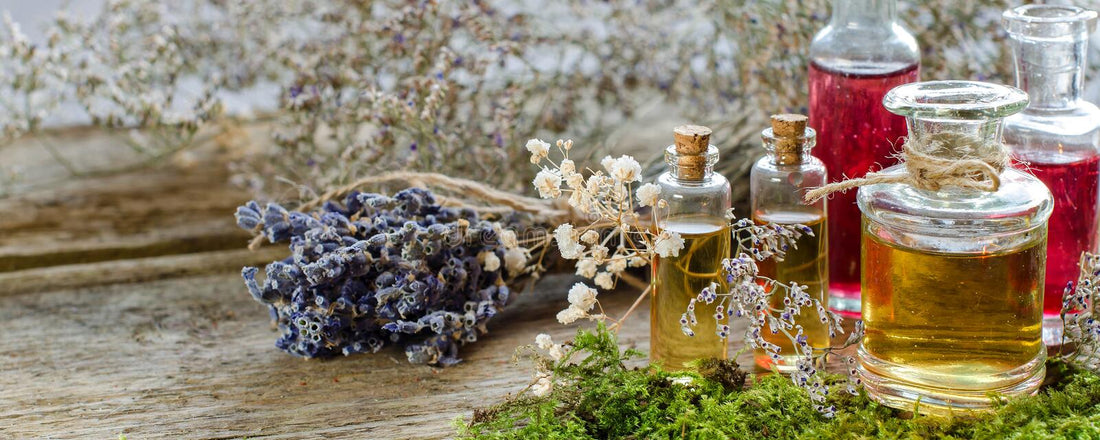An effective strategy for lowering stress, increasing focus, and improving general well-being is meditation. You may improve your meditation experience by using essential oils, which can help you unwind, focus, and reach a higher level of awareness. The following advice will help you use essential oils for meditation.
Choose the Right Essential Oil
Some essential oils are more appropriate for meditation than others due to their distinct qualities. For instance, lavender is well-known for its calming and unwinding attributes, making it a superb choice for meditation. Another popular option is frankincense, which is thought to help improve spiritual awareness and foster a sense of inner serenity. Other beneficial essential oils for meditation include bergamot, sandalwood, and ylang-ylang. Choose an essential oil for meditation that speaks to you and your meditation objectives.
You can utilize your essential oil in a variety of ways during your meditation practice once you've made your selection. One choice is to add a few drops of the oil to a diffuser, which will release the aroma into the space. As an alternative, you might apply a few drops of the oil on a tissue and take a direct whiff. You can also apply the oil to your skin or pulse points by combining a few drops with carrier oil, like coconut or jojoba oil.
Set the Mood
Creating the right environment is an essential part of any meditation practice, and using essential oils can help you to set the mood. Before you begin your meditation, create a peaceful space free from distractions. Dim the lights, light some candles, and play some soothing music if you like. You can also use a diffuser to spread the scent of your chosen essential oil throughout the room. Doing so will create a calm and relaxing atmosphere, making it easier for you to focus on your meditation.
Practice Mindfulness
When using essential oils during meditation, it is important to practice mindfulness. Pay attention to the scent of the oil, noticing how it makes you feel and how it affects your body and mind. If you become distracted, gently bring your attention back to your breath and the scent of the oil. You can also repeat a mantra or positive affirmation to help you focus.
Experiment with Different Oils
Everyone is unique, and what works for one person may not work for another. To find the one that resonates with you, it is essential to experiment with different essential oils. Some people find that certain oils promote relaxation, while others find that they enhance their spiritual awareness. Try using different oils during your meditation practice and pay attention to how each one makes you feel. Over time, you will discover which oils work best for you.
Incorporate Essential Oils into Your Daily Routine
You can improve your practice of meditation by using essential oils, but you can also use them in your regular activities. To help you unwind and relax, try adding a few drops of the essential oil of your choice to your bath or shower. Additionally, you can use the oil as a natural perfume by combining a few drops of it with carrier oil. You can benefit from essential oils all day long by including them in your everyday routine.
Use Essential Oils in Different Meditation Techniques
There are many different meditation methods, and you may use essential oils to make each one more effective. For instance, you can use essential oils like lavender, chamomile, or lemon balm to help you unwind and maintain focus if you practice mindfulness meditation. Use peppermint or eucalyptus essential oils to encourage mental clarity and improve your visualization abilities if you often engage in visualization meditation. If you engage in mantra meditation, using frankincense or sandalwood essential oils can help you develop your spiritual awareness and establish a connection with your inner self.
Blend Essential Oils for a Customized Experience
You can also blend different essential oils to create a customized experience that caters to your specific meditation goals. For example, you can blend lavender and frankincense to promote relaxation and spiritual awareness. You can blend bergamot and ylang-ylang to promote positivity and joy. You can also blend different oils to create a unique scent that resonates with you and your meditation practice. When blending essential oils, make sure to use carrier oil and dilute the oils appropriately to avoid skin irritation.
In conclusion, using essential oils during meditation can help you to relax, calm your mind, and achieve a deeper state of awareness. When selecting an essential oil for meditation, choose one that resonates with you and your meditation goals. Experiment with different oils to find the one that works best for you, and incorporate them into your daily routine to enjoy their benefits throughout the day. Remember to practice mindfulness and create a peaceful.
FAQ’s
Q: Are there any essential oils that should be avoided during meditation?
A: Yes, some essential oils can be stimulating and may not be suitable for meditation practice, such as peppermint, rosemary, and cinnamon. Instead, it is recommended to use essential oils that promote relaxation and calmness, such as lavender, chamomile, and frankincense.
Q: Can essential oils be ingested during meditation?
A: No, essential oils should not be ingested during meditation or at any other time unless under the guidance of a healthcare professional. Ingesting essential oils can be harmful and cause adverse reactions.
Q: How do I know if I am allergic to an essential oil?
A: Before using any essential oil, it is recommended to perform a patch test to check for any allergic reactions. Apply a small amount of the diluted essential oil to a small area of your skin and wait for 24 hours. If you experience any redness, itching, or swelling, it is best to avoid using that particular essential oil. It is also recommended to consult with a healthcare professional if you have any underlying health conditions or are unsure about using essential oils.


